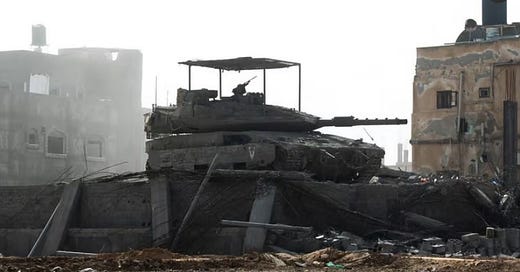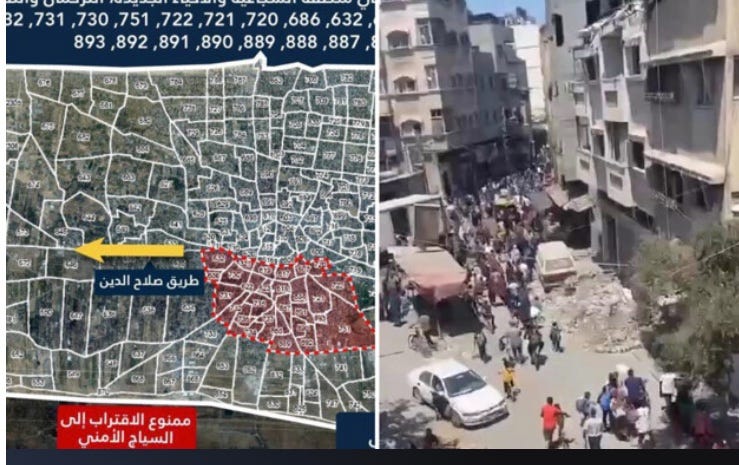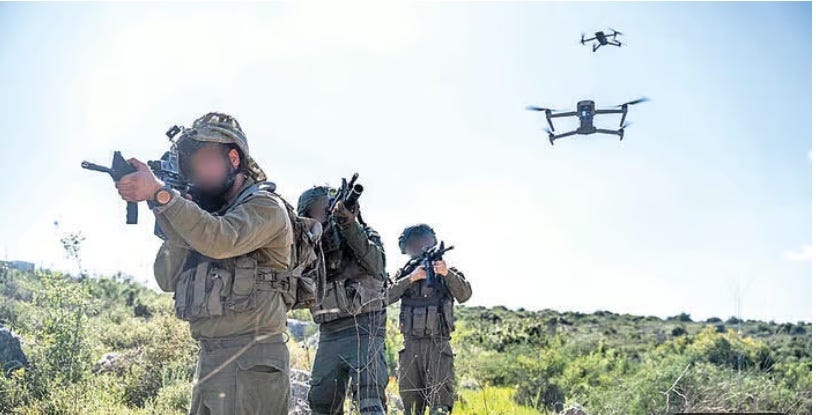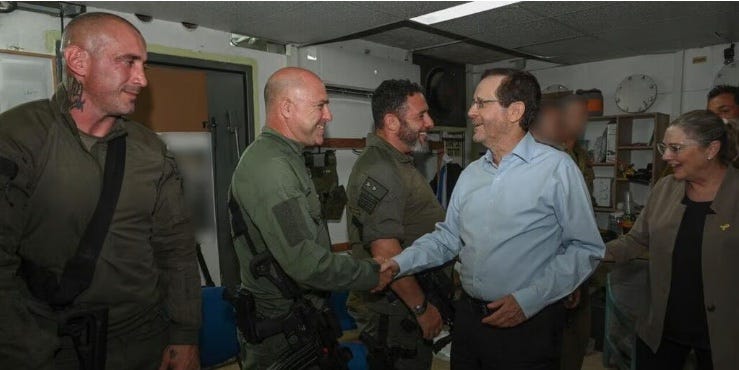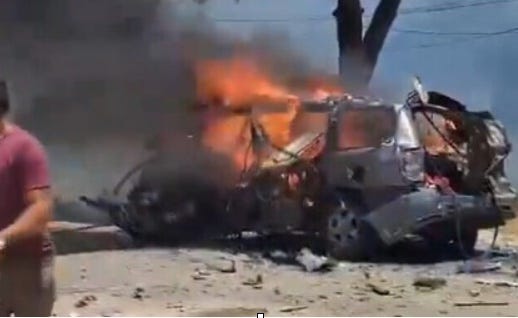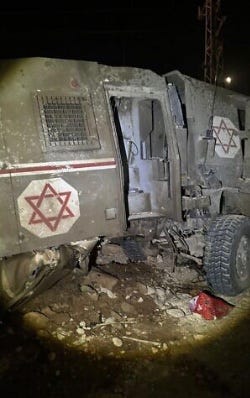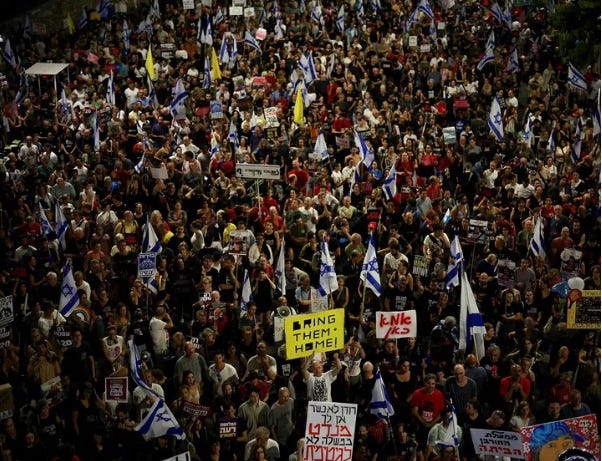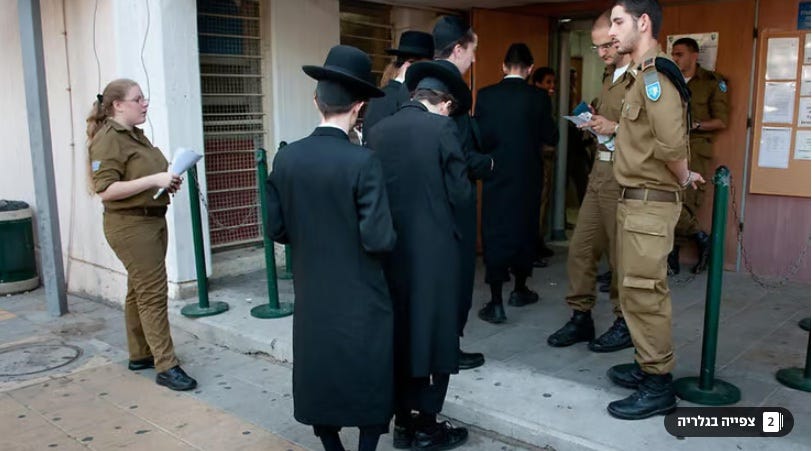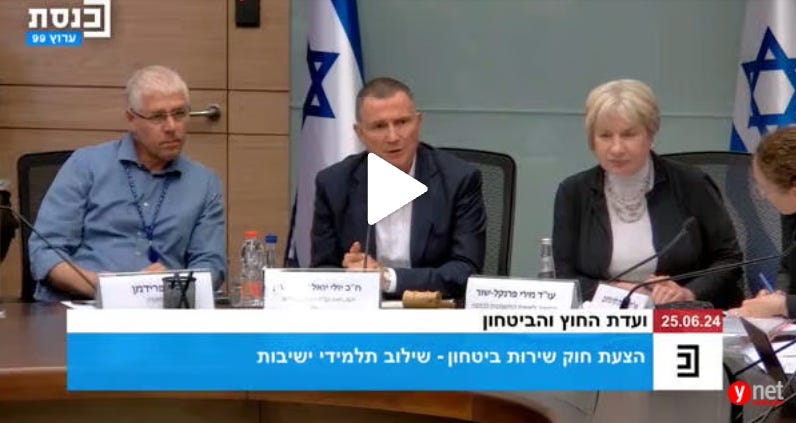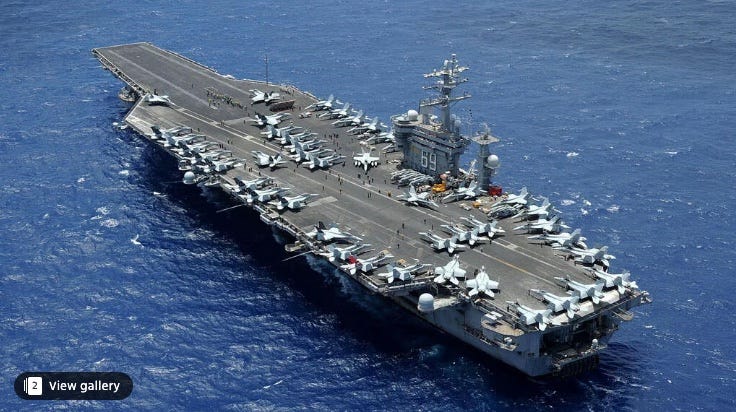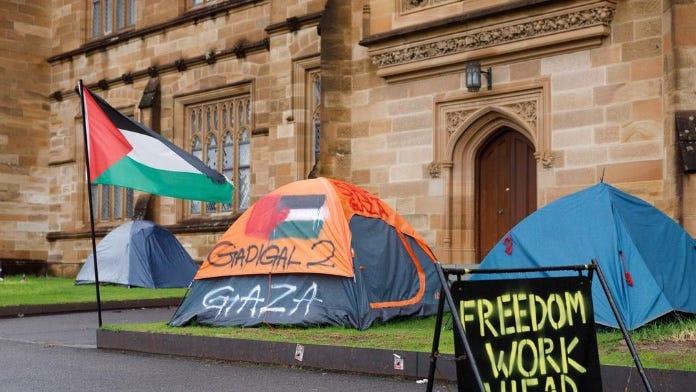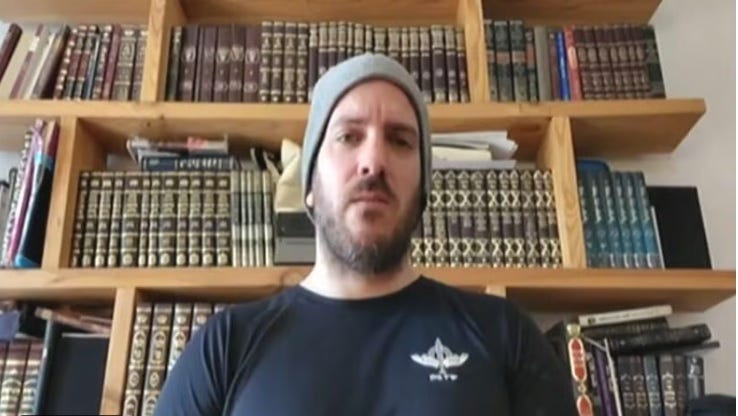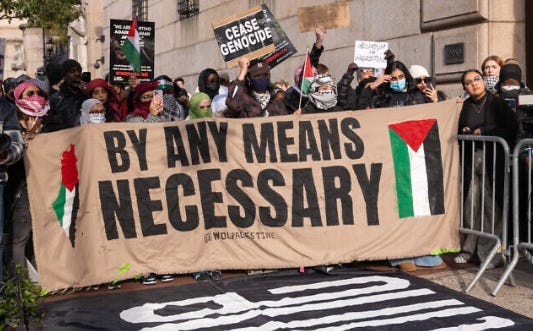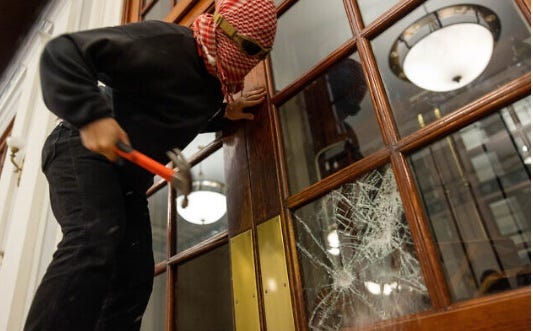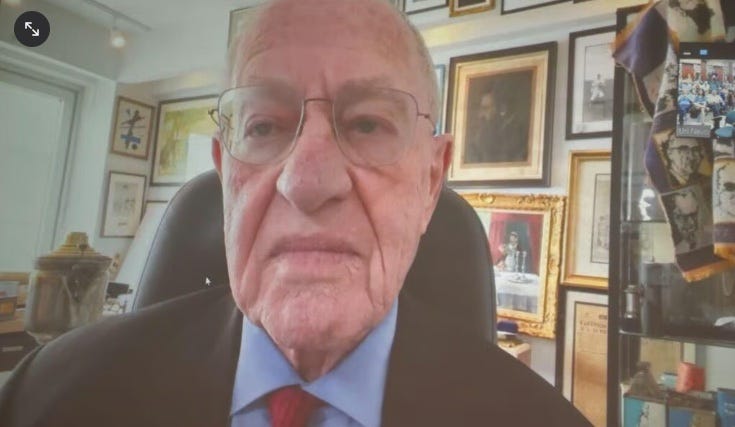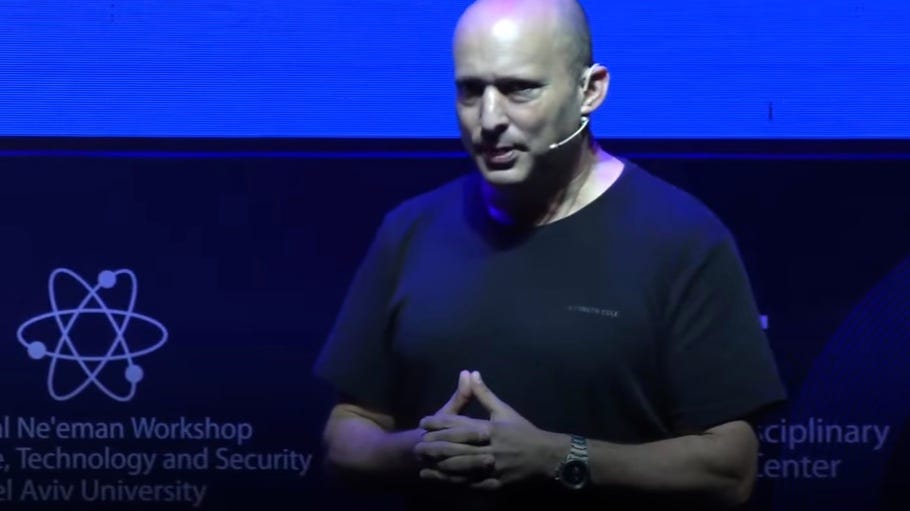War
Israel Defense Forces tank in Rafah, Gaza
Israel has been at war for nearly nine months. The IDF spokesman’s office says that Israel has effectively dismantled Hamas’ military infrastructure. The fighting now is just a clean-up of the last remaining elements that have survived Israel’s intense campaign.
That doesn’t mean that Israel has defeated Hamas. IDF spokesman Adm. (res.) Daniel Hagari said this week that Hamas was an idea and ideas are hard to kill.
Media reports that Israel was making progress bringing Egypt, the UAE (United Arab Emirates) and others into Gaza to help with the ‘Day After.’ There were also reports by Channel 12 TV’s military correspondent Nir Dvori that Prime Minister Netanyahu was holding talks with the Palestinian Authority to help with Gaza after Israel has called an end to the fighting.
Observers expect Israel to wrap up their campaign in Gaza within a week or two. And then the military would turn its attention to the north, and the intractable Hezbollah. Already, soldiers who had served months of combat duty in Gaza, and then were released from the fighting, are being called back and sent to the north to prepare for yet another battle front in this war.
The IDF has released findings that 16% of the buildings in Gaza have been destroyed. This is in stark contrast to the UN’s announcement that over 50% of the buildings have been destroyed. According to Ynetnews, foreign media mistakenly reports that up to 70% of Gaza has been destroyed.
The UN has been caught in gross exaggerations in the past. Recently they released revised numbers of those killed in Gaza, cutting the number by over 50%.
One of the reasons Israel has been so badly treated in the media may be because some of the opinion leaders are former reporters from the Qatar-funded Al Jazeera news outlet.
According to journalist Douglas Murray, writing in the New York Post, Al Jazeera is a network “founded, funded -and directed-by terrorists.”
He sites a number of Al Jazeera reporters from Gaza who were in fact members of the Hamas or Islamic Jihad military wing. Like journalist Al Jazeera “journalist” Ismail Abu Omar who had been badly injured in Khan Yunis by IDF forces.”
What Al Jazeera did not note, writes Murray, was that Ismail Abu Omar is also the deputy commander of Hamas’ Eastern battalion in Khan Yunis.
The Israeli government recently shut down the Al Jazeera offices in Israel.
According to Murray, The Washington Post lamented the Israeli government’s ban on Al Jazeera. Murray wrote,“Well, it seems that one reason it has been so anti-Israel in the past eight months is that its foreign desk alone includes six journalists who previously worked for Al Jazeera.”
Murray concluded, "When people wonder how the media go awry, this is a textbook “how.”
On Oct 7, 2023, over 3000 Hamas terrorists invaded Israel, murdering, sometimes brutally raping and beheading, over 1200 people in the south of Israel along the border with Gaza and kidnapping 252. Approximately 120 are still being held in Gaza. Estimates are that fewer than 50 are still alive.
This heinous attack, according to observers, is the driving force that keeps the IDF fighting the Hamas terrorists in Gaza.
Many Israelis say they are aghast that the world can ignore this massacre and turn the issue on its head and blame Israel for fighting to destroy Hamas. Some ask if the same questions were asked after Dec 7, 1941 when Japan declared war on the USA with its ally Nazi Germany.
As of June 27,2024, 316 Israeli soldiers have died in combat since Oct 27th when the IDF went into Gaza. Since the beginning of the war on Oct 7th. 3,922 soldiers have been wounded in battle, according to the Ministry of Foreign Affairs website. 1997 soldiers have been wounded since the ground incursion into Gaza on Oct 27th. 20 have been lightly wounded, 191 moderately, 27 severely wounded are still hospitalized.
And this is all before, and if, Israel turns the troops towards Lebanon in the north to confront Hezbollah.
Meanwhile, a group of seven victims of the Oct 7th Hamas massacre have sued UNRWA for $1 billion in a New York Federal court. In the suit, the plaintiffs claim that UNRWA aided and abetted Hamas in Gaza before and during the attacks.
As to the state of the Israeli army, according to France24, “The Israeli army does not officially comment on the state of fatigue of its troops, but the signs are clear...We are seeing examples of sooner-than-expected rotation of brigades and battalions," said Steven Wagner, historian and lecturer in international security at Brunel University London. In other words, the soldiers need more frequent breaks.
Many experts say the October 7 attack on Israeli soil and the intensity of the response decided by Netanyahu’s government, which requires a long-term commitment, surprised an army that was “too small" for the task.
Israeli military strategists thought that the era of major regional wars – such as the Six-Day War in 1967 or the Yom Kippur War in 1973 – was over, said Bregman. As a result, “the army disbanded six divisions over the last 20 years. Today it is missing approximately two entire divisions, or 10,000 additional soldiers”.
Gaza
IDF map of Gaza. Sajaiya in red (left) Gazans leaving Sajaiya neighborhood (right)
On Thursday, June 27, Israeli forces returned to the north of Gaza in a complex operation to flush out the remaining terrorists lurking in buildings and tunnels in the Gaza city neighborhood of Sajaiya. Fierce fighting has been reported.
As for the reports of famine in Gaza, that have been used by anti-Israeli groups around the world, this reports are false.
According to Ehud Yaari, Arab Affairs correspondent for Channel 12TV news, the IPC (Integrated Food Security Phase Classification) an organization affiliated with the UN, has revised it’s estimate of how many people were hungry in Gaza. In March the IPC declared it was on the verge of famine but this week the IPC issued a revised assessment, saying there was no famine in Gaza.
According to an article in the Times of Israel, “There is currently no famine in Gaza, a new report by the key(IPC) organization has found, despite the IPC having predicted in March that a full-blown famine would break out in the territory between March and July 2024.
“This was because of the increase in aid, food and water and other supplies, into Gaza. The organization made no reference to their previous claim that Gaza was suffering a famine.
“In this context, the available evidence does not indicate that famine is currently occurring,” the report said.
Meanwhile, the battles continue in Gaza. Gen (ret.) Israel Lev told Channel 12TV news on Thursday June 27th, that the problem in Gaza was still what happens the “Day After.’ According to Lev, neither the government nor the army has made a decisions on what will be.
Yaari said that Israel had made significant strides in some areas, like securing the strategic Philadelphia route, but there was no decision, either by the army nor by the government, who would secure the route once the IDF has left.
Yaari also said that Egypt was hesitant to commit to any role in ‘Day After’ Gaza. He said that there is a plan to organize an alternative to Hamas. As of now the UAE has sent in a police force to protect the hospitals. But no other forces have been sent in to help secure Gaza.
Yaari said that Hamas is now working as an underground resistance organization. They are quietly approaching small Palestinian groups urging them to take part in the new administration, while avoiding the Palestinian Authority, assuring these smaller groups that Hamas would provide security.
Yaari said that Hamas was achieving some success with this approach. However, he said that the US was convinced that even any plan devised for the ‘Day After’ would need Hamas approval.
Channel 12TV’s military correspondent Nir Dvori said that the IDF had entered the 3rd stage of the war, and was nearly ready to begin withdrawing more troops from Gaza.
However, Gen. Lev thought the situation as is could go on for a long time.
Lev said that Hamas was indeed worried about a new administration taking over Gaza but that the IDF and the government and the international community were not moving fast enough to set up a ‘Day After’ plan.
As for Sajaiya, the IDF warned the residents to move south because the IDF was going to carry out airstrikes and attacks against the remaining Hamas targets. Lev said that Hamas had returned to Sajaiya as a guerrilla force not as an army.
Lev said that Israel had not achieved a big success in Gaza. He thought that Defense Minister Yoav Gallant had achieved more reaching some ‘Day After’ plan for Gaza in his few days visit to Washington than the IDF and the Government had reached in six months.
North
IDF in the north of Israel using drones
Israel’s north has been pounded almost daily by rockets and armed drones from Lebanon. 81 villages and towns have been hit. Over 60,000 residents have been evacuated to the center of the country, some as far as Eilat on the Red Sea.
According to the Times of Israel, so far, the skirmishes on the border have resulted in 10 civilian deaths on the Israeli side, as well as the deaths of 15 IDF soldiers and reservists.
There have also been several attacks from Syria, without any injuries. Hezbollah has named 349 members who have been killed by Israel during the ongoing skirmishes, mostly in Lebanon but some also in Syria. In Lebanon, another 64 operatives from other terror groups, a Lebanese soldier, and dozens of civilians have been killed.
The daily attacks have destroyed some villages like Metulla, turning others into ghost towns.
A Channel 12TV report on Wednesday showed a Kyriat Shmona policeman picking through the rubble of his home that was hit by a Hezbollah rocket. The TV then showed him visiting his wife and children who had been evacuated to Eilat 535 kilometers (@340 miles) away from the northern border.
Some pundits say that war is imminent in the north. Others hold out hope that some diplomatic solution can be reached to prevent an all out war.
There are growing voices calling for Israel to confront Hezbollah. However, military experts say that Israel should not declare war on Hezbollah but on Lebanon, since Hezbollah is not a country merely an army-sized militia. Declaring war on Lebanon would then involve the United Nations, since Lebanon is a member and Hezbollah is not.
Whatever the case, more and more soldiers are being called back to the army, after having served months in Gaza, and are being sent up to the northern border.
Nir Dvori, military correspondent for Channel 12TV, said he recently visited a paratrooper training course in the north and found the troops had high morale and were all well-equipped ready to go into battle.
Wrapping up his trip to Washington, Israel’s Minister of Defense Yoav Gallant said Israel could send Lebanon to ‘back to the Stone Age’ but did not want an escalation with Hezbollah but preferred a diplomatic solution.
However, others think that any fight in Lebanon will be bloody and costly and could lead to an all out war in the Middle East.
Iran has said that it would support Hezbollah if they were attacked. Russia has reached a mutual defense pact with both Iran and North Korea, both sworn enemies of Israel. The USA has said it would come to Israel’s aid should a war break out with Hezbollah, but not put boots on the ground.
A war in the north could then obviously spin out of control and have global implications.
For example, observers say that should Israel go into Lebanon to fight Hezbollah, then Iran might come to Hezbollah’s aid with long-range missiles, as well as deploying their proxies from Syria and Iraq and even Yemen.
Analysts say that should Iran get directly involved then they’d face American missiles and jet fighters. This could bring Russia to Iran’s defense. And then North Korea to Russia and Iran’s defense. And then China may enter the fray. All because of Hezbollah.
Hezbollah leader Hasan Nasrallah has said Hezbollah is firing at Israel in support of Hamas in Gaza. And that should the war in Gaza stop, then Hezbollah would stop firing on israel.
American diplomat Amos Hochstein has been trying to reach some diplomatic solution, but so far has come up empty.
Ben Wedeman, reporting for CNN, has said it would be easy to take apart Lebanon’s electrical grid since it was barely working as is. But “…taking apart Hezbollah’s power in days, however, is a far taller task.”
Wedeman points out that Israel and Hezbollah fought an inclusive war in 2006. A cease-fire was reached with Hezbollah agreeing to pull back from Israel’s northern border with Lebanon 25 km to the Litani river. However, Hezbollah has ignored UN resolution 1701 ordering Hezbollah back to the LItani and is stayed perched on Israel’s border.
One former Israeli soldier who had served on the norther border said the concern today is that Hezbollah could easily launch a ground attack similar to that launched by Hamas on the Gaza border. Pushing Hezbollah back 25 kilometers would neutralize that threat of a quick ground invasion.
So far this war in the north has caused destruction on both sides. Israel TV’s channel 12TV news reported that Israel has destroyed about 1500 homes in south Lebanon within five kilometers of the border with Israel and made more than 10,000 uninhabitable. And there is no end in site.
But, according to CNN’s Wedeman, “Hezbollah too has long been preparing for war.
Hezbollah’s missile arsenal includes, according to Israeli estimates, at least 150,000 missiles and rockets. Israel also says that Hezbollah has already fired 5,000 missiles since October. This means as Hezbollah leader Hassan Nasrallah said in a speech last week, that much of Hezbollah’s arsenal remains intact.
Add to this that CNN reported that Israeli officials have been surprised by the sophistication of the militant group’s attacks.”
Within the last few weeks, Hezbollah has attacked Israeli military installations in the upper Galilee, using armed drones to attack Iron Dome anti-missile batteries. Last week Hezbollah posted surprising drone footage taken of Israel’s Haifa port and nearby military bases.
Wedeman also reported that “Hezbollah can probably field between 40,000 and 50,000 fighters – Nasrallah recently said more than 100,000. Many of these gained combat experience fighting alongside regime forces in the Syria civil war…As a fighting force, Hezbollah is highly trained and disciplined, unlike many other guerrilla groups.”
Wedeman quoted a speech given by Benny Gantz at the Reichman University earlier this year when he submitted a report entitled “Fire and blood: The chilling reality facing Israel in a war with Hezbollah. “
In the report Gantz predicted that should a war break out Hezbollah would fire between 2,500 and 3,000 rockets a day at Israel and that these barrages would go on for weeks. In the entire 2006 war Heabollah only fired 117 rockets a day.
Experts agree that Israel would also destroy much of Lebanon Hezbollah should a war break out. Not only taking out the power grid, but Beirut airport and other key targets.
However, warned Wedeman, Hezbollah may now be able to hit Tel Aviv’s Ben Gurion airport with long-range missiles, as well as Tel Aviv and beyond.
Wideman reports that, “In the event Hezbollah, Iran’s premier regional ally, its crown jewel, is attacked by Israel, and indeed is “taken apart” by Israel as Gantz threatened, an Iranian response is likely.”
Wedeman adds that, “The rhetoric on both sides is heating up. Germany, Sweden, Kuwait, the Netherlands and others, even the USA, are calling on their nationals to leave Lebanon immediately. If ever there was a danger of a regional war in the Middle East, that moment is now.”
Israel’s president Yitzchak Herzog and wife meeting soldiers in the north
Israel’s President Yitzchak Herzog visited Israel’s north for two days and admitted, “This situation is spiraling out of control…and the international community has done almost nothing to contribute to the full security of the residents of Israel, despite repeated violations of treaties and international agreements from Lebanon by Hezbollah.”
After touring the north and visiting Metulla, the president was upbeat and encouraging. He said, “We’ll return here and exercise our sovereignty through fulfilling lives. We’ll restore houses, and build and bring everyone back to Metal and all the other Northern communities.”
Gen. (ret.) Israel Lev told Channel 12TV that entering into a war with Hezbollah was a “different opera” than that Israel fought in Gaza. He said that Hezbollah would not be alone in this battle and that Iran was almost certain to join on Hezbollah’s side.
Lev thought that Israel wants to have the backing of some sort of international coalition, allies from Europe, the moderate Arab countries, and the USA, before taking on Hezbollah.
According to the Times of Israel, on Thursday evening Hezbollah launched a barrage of rockets at the Galilee starting a serious of fires. This after two Hezbollah operatives were killed in an IDF drone strike in southern Lebanon’s al-Tiri earlier today. The IDF adds that fighter jets also struck a building used by Hezbollah in southern Lebanon’s Ramyeh.
According to a statement by the Fire and Rescue services, Nine firefighting teams battled blazes in two locations where fires broke out following a rocket barrage fired by Hezbollah in Lebanon at northern Israel,
On Friday, the IDF closed off entry to Metulla until next Monday. This after several security personnel guarding Metulla were injured by rocket fire earlier in the week.
West Bank
Terrorist vehicle targeted by IDF in West Bank
Israel has been consistently carrying out operations in the West Bank towns and villages in the search for terrorist cells. The hope, according to pundits, is to neutralize terrorist cells in the West Bank that are planning to strike at targets inside Israel.
On Wednesday June 26th, Israeli security forces carried out a complex overnight raid in Jenin aimed at arresting or killing members of a Hamas terror network in the city and adjacent refugee camp. This was part of a long series of counter-terrorism operations in the area, military sources said.
Armored Personnel Carried hit by bomb
During the operation an Israeli soldier, Capt. Alon Sacgiu, 22, of Hadera, was killed and sixteen other injured after medics’ armored personnel carrier drove over and exploded a bomb hidden several meters beneath the road.
Other Israeli soldiers rushed to the aid of their lightly wounded comrades. However, the terrorists had planted mines along the road near the hidden bomb. The mines killed Capt. Sacgiu and wounded five other soldiers.
Israel has no other choice, say military analysts, but to consider the West Bank as another front in the war with Hamas and Hezbollah.
Since October 7, troops have arrested some 4,150 wanted Palestinians across the West Bank, including more than 1,750 affiliated with Hamas.
According to the Times of Israel, Iran has been supplying rockets and missiles to terrorist entities in the West Bank. The Palestinian authority have stated they believe that Palestinian terror groups in the West Bank will be able to launch rockets into Israel within a year.
These rockets are mostly smuggled in from Jordan. who says it has foiled many attempts to smuggle in weapons by infiltrators linked to the pro-Iranian groups in Syria.
According to the Israel Kan Channel 1TV broadcaster, Amman has recently discovered two explosive storage sites near the capital of Amman. One near a US army facility.
Israel’s Channel 12TV news reported on Thursday night that the Israeli prisons were so overcrowded that a score of security operations were cancelled in the last week, and over 100 in the last month because of the overcrowding in the prisons.
Channel 12TV military correspondent Nir Dvori said that the blame lay with Minister of National Security Itamar Ben Gvir. Dvori said Ben-Gvir has not taken the problem of overcrowding seriously. Has not arranged for the necessary budgets to add jail cells and expand the prison system’s capacity. Dvori said Ben Gvir was endangering Israel’s security by not doing his job as Minister of National Security.
Meanwhile, by closing the borders from the West Bank into Israel, nearly 200,000 Palestinians have been kept from their jobs. This has effectively killed Israel’s construction industry that relied on Palestinian artisans and laborers.
These Palestinian laborers and artisans are now unemployed. “We are hungry,” said one laborer.
Unemployment in the West Bank is now 32%, according to a recent International Labor Organization. Many have reportedly considered moving abroad. An estimated 40,000 still work illegally in Israel.
Recently, an IDF soldier was caught smuggling Palestinian workers into Israel in her car, paid 50 shekels (@$15) per person per trip.
According to the Times of Israel, Raul Sargo, president of the Israel Builders Association, told a Knesset committee on December 25 that the construction industry is “at a complete standstill and is only 30 percent productive. Fifty percent of the sites are closed and there is an impact on Israel’s economy and the housing market. Residential construction has fallen by 95%.” Construction accounts for 6% of Israel’s GNP.
Israel’s agriculture industry relied on foreign labor, mostly from Thailand and Gaza. Recently, Israel reached an agreement to allow 80,000 foreign workers from India and Sri Lanka and other Asian countries to enter Israel. But the bureaucratic process is slow.
Thailand recalled all of its citizens from Israel following the outbreak of the war. However, Thailand said the government will now allow them to return. But only about 100 a week will be able to overcome the bureaucratic hurdles of both countries. 10,000 are expected by the end of the year.
Hostages
Hostage protest in Tel Aviv
There is no good news when it comes to hostages, said one observer. The negotiations with Hamas have essentially ground to a halt.
The US has admitted that the negotiations are at a stalemate. Hamas demands Israel’s complete cessation of fighting and a withdrawal of all Israeli forces from Gaza. And Israel has demanded a release of all hostages before any cessation of fighting or withdrawal of troops.
Meanwhile, the hostages’ families have continued their daily protests. Some gather outside the Prime Minister’s home in Caesarea, others outside his Jerusalem home. Often the hostage families are joined by groups calling for the end of the Netanyahu government and a date for new elections.
Many hostage families claim that Prime Minister Netanyahu is not seriously negotiating the release of the hostages. They believe that a different government would take another approach and succeed in the negotiations.
On one side there are the ultra-Nationalists like Finance Minister Bezalel Smotritch, who believes that the hostages are a casualty of war and not equal to the danger of releasing hundreds of Palestinian terrorists.
On the other side are those who believe Israel could call a halt to the fighting, arrange the release of the hostages, and then go back into battle.
As of now an estimated 120 hostages are still held in Gaza, some in tunnels, some in apartments.
However, every few days the IDF announces that another body of another hostage has been found. Experts now estimate that no more than 50 of the 120 hostages remain alive.
Politics
IDF recruitment office
The Haredi (ultra-Orthodox) draft law has proven to be such a contentious issue that some pundits speculate the Netanyahu government might fall over it.
Rabbi Moshe Meia, spiritual leader of the ultra-Orthodox Shaas party, has said that any student of one any of the institutes that devotes themselves to the study of the Torah who goes into the army will be breaking the Sabbath laws.
Others in the ultra-Orthodox community take a more strident tone, forbidding “Yeshiva” students from entering the army and castigating the government for waging a war against the Torah.
The Israeli High Court on Wednesday ruled that ultra-Orthodox men of draft age could be conscripted. High Court Judge Stolberg wrote that in this time of war when Israel faces an existential threat no one can be considered outside the draft.
Ultra-Orthodox men have been allowed exemption from the draft since 1949. The then Chief Rabbi of Israel, Rabbi Isaac Herzog, grandfather of Israel’s current president Yitzchak Herzog, believed that since nearly the entire ultra-Orthodox world had been destroyed in the Holocaust it was up to him, as spiritual leader of Israel, to help rebuild the world of Torah scholarship. He advised then Prime Minister of Israel David Ben Gurion to exempt those in Yeshiva, studying Torah and Talmud, from the draft.
However, back then there were only 400 students who were eligible for exemptions. The Holocaust had decimated the “yeshiva world.” Today there are nearly 63,000 yeshiva students who receive exemptions.
Recent reports show that many of those 63,000 are not even students. Even if they are registered in a yeshiva they hardly ever turn up for class or study sessions. Still, the yeshiva they learn at receive a government stipend from the ministry of education.
The recent high court decision also ruled that all payments to yeshivot that do not allow their students to be drafted shall have their funding stopped.
One observers points out that the issue isn’t merely to keep the students in the yeshiva. Experts in the ultra-Orthodox community admit that true scholarship in a yeshiva requires commitment and intelligence and that not every young ultra-Orthodox male is qualified.
Rather, say the pundits, the issue is keeping these students within the ultra-Orthodox world by any means necessary even falsifying attendance in a yeshiva.
Yuli Edelstein (center) at Foreign Affairs and Defense Committee
Following the high court ruling, Yuli Edelstein, chairman of the Foreign Affairs and Defense Committee, decided to postpone forwarding a bill to the Knesset to vote on the Ultra-Orthodox draft law. This move sent shock waves through Prime Minister Netanyahu’s coalition government, especially among the ultra-Orthodox parties.
Some accused Edelstein of working with the opposition to topple the present government. Pundits say it is as yet unclear how this crises will end. Some speculate the government may fall and new elections will be held in November.
This outcome would be welcomed by the nearly daily protests calling for a new government.
In a recent poll on Israel’s Channel 12TV news,
70% of the Israelis polled thought that the ultra-Orthodox yeshiva students should be drafted. 17% were against. 13% didn’t know.
When it came to the breakdown of seats should an election be held now, Benny Gantz’s National Unity party would garner 23 seats, Netanyahu’s Likud 20 seats.
A coalition led by Gantz would reach 68 seats if new elections were held now but Netanyahu’s Likud coalition would only get 47 seats. The moribund Labor party that was lagging in the polls would now get 11 seats under the new leadership of Gen (ret.) Yair Golan.
There have also been talks of former Prime Minister Neftali Bennett returning to politics in a coalition with Avigdor Leiberman’s Israel Home party (14 seats) and Yair Lapid’s Future party (15 seats). Leiberman has expressed his desire to lead such a coalition however pundits believe Bennett would draw more votes.
A new controversy began concerning the multi-billion dollar purchase of two submarines from the ThyssenKrupp company. A government commission established by the last government has been investigating the case. This week the commission sent letters of warning to five people involved in the purchase, among them Prime Minister Netanyahu.
The five were Netanyahu, former National Security Advisor Yossi Cohen, former Minister of Defense Moshe ‘Bougie’ Ayalon, and Israel Navy Commander (2011-2016) Admiral Ram Rothberg, and National Security Council employee Avner Simchoni.
On June 24th, the government investigation committee into the submarine affair stated in the warning letter it sent to Prime Minister Binyamin Netanyahu that "his conduct in the matters investigated by the committee led to a deep and systematic disruption of work processes and power building, and to damage to decision-making mechanisms on a number of sensitive issues."
It was further noted that "thereby he endangered the security of the state and harmed the foreign relations and economic interests of the State of Israel".
The attorney general must decide if there is enough evidence for an indictment of any of the four who received warning notices.
One observer pointed out that should Netanyahu be indicted for some felony related to the purchase of the submarines, it would be only one more trial to face that could be postponed for years and years. As of now Netanyahu is on trial for three felonies. The trial began in 2020 and is expected to last until 2027 with appeals, should he be convicted.
Red Sea
USS Eisenhower
According to Windward, the Maritime Global Trade Roundup, the Iranian -backed Houthi terrorist group carried out attacks on two merchant vessels, the Transworld Navigator (IMO: 9469924), a Liberian-flagged, 292-meter bulk carrier, and the Stolt Sequoia (IMO: 9235062), a Liberian-flagged, 183-meter oil/chemical tanker. Public sources noted that the Transworld Navigator was targeted in the Red Sea and the Stolt Sequoia was attacked in the Indian Ocean.
In addition, the Houthis later attacked the MSC Sarah V (IMO: 9181675), a 294-meter Liberian-flagged container vessel owned by the Mediterranean Shipping Company, while sailing in the Arabian Sea. Based on Windward data, the vessel arrived at the Arabian Sea on June 24, after departing Panama.
The vessel sailed through The Cape of Good Hope for the first time. After the attack, the vessel lost its signal, and on January 27, it was found in the Hormuz Strait, heading towards Port Khalifa, UAE.
According to the Washington Post, on Wednesday, the Houthis claimed they used a new hypersonic ballistic missile in the assault, which targeted a ship farther away then nearly all of the previous assaults they’ve launched in the Gulf of Aden.
Between the weeks of June 9-15 and June 16-22, there was a 75% decrease in area visits in the Egyptian EEZ by cargo vessels.
According tot he Washington Post, the rebels have targeted more than 60 vessels by firing missiles and drones in their campaign that has killed a total of four sailors. They seized one vessel and sank two since November.
A U.S.-led airstrike campaign has targeted the Houthis since January, with a series of strikes on May 30, killing at least 16 people and wounding 42 others, the rebels say.
The aircraft carrier USS Eisenhower, that had been based in the Red Sea and the Mediterranean, has transitioned back to the USA and will be replaced by the aircraft carrier USS Roosevelt.
Antisemitism
Pro-Palestinian protest at Sydney University, Australia
Sydney University has agreed to review its Israel research and investment Policy with the participation of a pro-Palestinian Protest group.
However, Jewish institutions and groups say they 'have lost confidence' in the university, and allege that it allows extremist groups on to the review committee as part of deal to end pro-Palestinian campus encampments.
The compromise came as the university removed the encampment, set up by the Students for Palestine Used group, that has been on university grounds since April.
Shimon Nataf
In New York, Shimon Nataf, a Jewish-Israeli law student at Columbia University, had returned to studies in New York after serving five months in Gaza as part of the special Yamam unit.
Nataf saw a post backing Hamas on X. The post was by a Palestinian from the "destroyed al-Azhar University' in Gaza, who said on X that he had successfully defended his MA thesis from a tent in Rafah and was on his way to a Ph.D. in Education.
"A PhD on how to rape Jewish little girls?" The Israeli sarcastically asked in his posted response. He added the comment, “do you also support the rape and murder of young girls?”
The university called Nataf in for a hearing because some students filed a complaint against him.
Nataf told Ynetnews. "Hamas supporters definitely tried to get me expelled. But as far as the university is concerned, they first send you a letter saying you have a hearing, and at the hearing, they decide whether to proceed with disciplinary action that could lead to more severe penalties, reject the claims, or settle for a warning.”
On advice of his university advisor Nataf hired an attorney for the hearing. He’d prepared a defense statement describing the horrendous scenes committed by Hamas that he’d witnessed in Gaza as a soldier.
At the hearing the university accused him of discrimination and pressured him to apologize for what he’d written. He refused. “I think I made them very uncomfortable. They didn’t realize that this was the kind of student they were dealing with, someone who actually participated in the war for five months, and I think they got a bid scared.”
The charges against Nataf was dropped. Asked about continuing to study in places that obviously included antisemitic students, he said, “…we need to start seriously considering what value these universities really provide, and maybe study somewhere where we don't need to accept this kind of thing, but I think that will take a long time.”
Also, billionaire Columbia contributor Robert Kraft has said he is withdrawing his donation of $1 million to Columbia and giving it instead to Yeshiva University.
Meanwhile, Some Jewish Columbia students see no end to campus antisemitism after DA closes case against pro-Palestinian students arrested for various criminal acts during the campus protests.
November anti-Israel protest at Columbia University
Manhattan District Attorney Alvin Bragg dropped the charges last week against the majority of the 31 46 anti-Israel protesters who broke into and occupied Hamilton Hall in April leaving many to fear they can be targeted without consequence.
Anti-Israel activist breaking into Hamilton Hall
According to the Times of Israel, during a June 20 hearing, the district attorney’s office said it was dismissing cases against 31 of 46 people charged with trespassing in the academic building on April 30, largely because it lacked sufficient evidence. The protesters concealed their faces with masks and covered security cameras, which made them difficult to identify and prosecute.
Columbia senior Eden Yadegar said, “This same group that shut down Columbia with a festival of anti-American and antisemitic vitriolic violence this spring has vowed to continue what they describe as ‘strategic, targeted attacks on all aspects of life,’ encouraging the greater New York community to join them in their commitment to ‘agitate’ and ‘escalate,'” Yadegar said.
Reportedly, the district attorney said that because the students wore masks it was nearly impossible to identify them and bring charges against specific individuals.
According to Prof. Joshua Mitts of the Columbia University Law School, “It is my hope that the university pursues aggressive disciplinary measures….Occupying a building is not a small thing. Amnesty, which some faculty are calling for, is deeply inappropriate.”
Harvard had their own problems some of which shocked visiting professor Rabbi David Wolpe when he took a position at the famed Harvard Divinity School after retiring from the prestigious Temple Sinai in Los Angeles.
Wolpe began his term just before Oct 7th and the massacre perpetrated by Hamas on the Jewish residents just across the Gaza border. “The day after Hamas’ brutal massacre of some 1,200 Israelis, 33 campus organizations issued a statement blaming Israel for its citizens having been raped, brutalized and burned alive,” Wolpe wrote in an article in the LA Jewish Journal.
In the article he wrote, “In a place where discourse and argument should prevail, certain suggestive silences took their place. In silence and stealth hostage posters were ripped down and defaced. Complaints from Jewish students to the administration were met with silence.”
Later in the article he dissected antisemitism on campus. “Repeatedly we witnessed the phenomenon of disparaging Jews with whatever crime the world particularly despises at the moment.
“As I wrote on X: “Today colonial-settlerism is the evil of choice, so Jews are colonial settlers. Nazism is a perennial hatred, so Jews are Nazis. If you hate communism, Jews are communists, if you hate capitalism, Jews are capitalists.
“You can hate Jews because they are weak and stateless or because they are strong and ethno-nationalists. Because they wear ‘regular clothes’ and blend in or because they wear long black coats and side curls and refuse to assimilate. Because they are subhuman (the Nazis called them ‘vermin’) and because they are superhumans who control the world.
“Because they are resolutely secular or stubbornly religious. Because they went like lambs to the slaughter or because they fight too vigorously. The image of the Jew shapeshifts as a dark psychic threat in the hater’s mind.
“The one thing the antisemite is sure of, however, whether marching at a Klan rally or just hanging out on campus: There is a good reason. They would NEVER hate Jews just because they are Jews.”
Wolpe said he was ignored after approaching administrators “more times than I can count,” warning that the early protests were a five-alarm fire not a slow burn.”
He witnessed the anti-Israeli tent compound that went up, he heard from Jewish students of their fear to speak up in class or even move around their dorms, he saw, to his dismay, Jewish students in colorful skullcaps in a protest tent.
“There are Jewish students who know the safest silence is to join the chorus. How often could one spot wearers of multicolored kippot chanting ‘from the river to the sea’ in the surreal parade of students advocating for their own destruction?”
Wolpe eventually came to the conclusion that his loyalty was not to Harvard but to the Jewish people. “Parts of the university epitomized an ideology that I believe is injurious to higher education and devastating for Jews.”
In his resignation letter he wrote: “The ideology that works only along axis of oppression and oppressed places Jews as oppressors and therefore intrinsically evil, is itself evil. Ignoring Jewish suffering is evil. Belittling or denying the Jewish experience, including unspeakable atrocities, is a vast and continuing catastrophe. Denying Israel the self-determination as a Jewish nation accorded unthinkingly to others is endemic, and evil.”
In his conclusion, Wolpe wrote, “The students who stood up to cheer for Hamas may not have been the majority, but they were not outliers either.
”This matters because both in this country and abroad Harvard has an outsized influence. Many Harvard students, having waded in the murk of anti-Israel and antisemitic rhetoric throughout their college (and sometimes high school) years, will now go on to positions of leadership within multinational corporations, global politics and media as well as academia. They will shape society worldwide. Ideological deformities and malignancies are preparing to infiltrate positions of power in the U.S. and abroad.
“…As a student in my class put it, after having walked through Harvard Yard and being screamed at by some of the protesters: ‘They don’t just hate what I believe. They hate me.’
“I wanted to contradict him. But I felt, as he said it, that sick feeling again in my stomach and this time I took it for what it was — the harbinger of truth.”
EDITORIAL
Is Israel’s future stable or shaky? Depends on who you ask. According to the Iranian Supreme Leader Ali Khamene Israel’s time is running out. According to Prime Minister Netanyahu, Israel is in good shape. The truth, according to analysts, lies somewhere in between.
Alan Dershowitz
Legal genius Alan Dershowitz said in an interview in Ynet that Israel has to be strong and confront every one who opposes Zionism no matter where they are or who they are. He thought Israel was now fighting a war on five fronts.
Of course, hard as it is to believe, Dershowitz’s opinions may not be that well thought-out. He said that Israel’s Prime Minister Netanyahu did the right thing going public with his complaint against the USA halting the shipment of 2000 lb and 500 lb bombs to Israel.
The USA had a different view of Netanyahu’s public castigation of the defense shipments to Israel. On Wednesday, US Sec of Defense Lloyd Austin reminded Israel’s visiting Defense Minister Yoav Gallant that America had provided $6 1/2 billion in military aid to Israel since the Hamas invasion of Israel on Oct 7th.
On antisemitism Dershowitz thought “I think we're seeing pervasive antisemitism throughout the world. In every corner of the world from Australia to Europe to Africa. Never before have the Jewish people and the nation-state of the Jewish people been subject to so much antisemitism and it grows not out of the strength of Israel but out of its weakness.
Israel is facing its greatest crises since the Holocaust.
“The antisemitism began on October 7 when Israel showed weakness. Gaza is just an excuse and a recruiting mechanism for getting people from around the world to attack.
“Israel, and the Jewish people today are not prepared to respond to this multi-front attack. We're getting not only a five-front attack against Israel militarily, but a pervasive attack against the Jewish people throughout the world. And we don't have the preparation necessary to fight back. So we're in a major crisis.”
Dershowitz was pessimistic about the future of Israel because of the widespread antisemitism. “The deepest problem is that the enemies of the Jewish people and the enemies of Israel tend to be young and these are our future leaders. So, I see darkness at the end of the tunnel when it comes to the role of Jews and the role of Israel in the world in the future years. I'm talking 10, 20, 30 years from now.”
He also said that when it comes to Iran and their nuclear weapons potential, “Israel has to act on its own. Israel has to understand that it can never again count on the unequivocal support of the United States.”
“Iran is the major enemy as long as the Mullahs stay in power…Iran has figured out how to defeat Israel by sending surrogates to kill Israelis, making Israel respond, and turning the world against Israel.” He said that those who support Israel must insist “…that Israel fight back with strength and not weakness.”
“…You know, King David got it right when he said, The LORD gives strength to his people; the LORD blesses his people with peace. The only way the Jewish people will ever get peace is through strength.”
And for those who want to tremble, Iran’s leadership is apparently deciding if this is the right time to finally take the last steps and assemble a nuclear bomb.
On the good news front was the defeat of Congressman Jamal Bowman of the 16th district in New York. Bowman was the first progressive to be defeated. Bowman was defeated by centrist Democrat George Latimer.
Bowman is a virulent anti-Israeli Democrat as well as part of the anti-Israel ‘squad’,was defeated in his bid for reelection for his seat in Congress. “Perhaps this is a harbinger for good things to come,” quipped one observer.
Former Prime Minister Neftali Bennett
Then there is former Prime Minister Neftali Bennett. On June 26th Bennett spoke at the 2024 Cyber Week, a hi-tech event, at Tel Aviv University. ( You can find this speech on Youtube if you’re interested.)
He said that on Oct 7th Israel failed. Institutional Israel failed.Terrorists invaded. There were four massacres, three kibbutzim and the Nova music festival. But there were also 60 other battles in kibbutzim and cities in the south. These battles, he said, “were fought by us, by Israelis, by the nation of Israel.”
On Oct 7h, shortly after the news of the attacks was broadcast, Bennett said that “thousands of Israelis got in their cars and drove down to the Otef (Gaza envelope) to help… One drove 100 people out of the otef “ before being killed himself. Others fought in the cities and towns in the south. “It was these people who staved off a pogrom. The Israeli people. The nation, not the institution of Israel.
“We, the people of Israel, saved the day. And I draw my own confidence in the future of Israel from these people.”
After nine months of war Israelis are still volunteering to help bring in the crops of those kibbutzim and moshavim in the Gaza envelope.
Israelis are still cooking meals for the soldiers.
One grandmother cooked 100 cakes, as she does nearly every week. One retired teacher still drives from the center of the country to the Gaza envelope every Friday to deliver the meals.
There is still a resilience to the Israeli people even after this long battle. Even in the face of those fierce battles in the north that may still come.
Tough or trembling. You decide.

